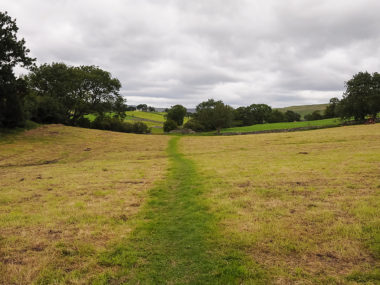Here we are in September already!
In a normal year, September would mark the end of our summer vacations. Our rest and recovery time would have come and gone. Our slower days at work time would be a distant memory. Our ‘we’ll focus on that project after the summer’ will be starting to kick into gear.
In a normal year, September would mark the beginning of the school year. Kids back to school. New classrooms. New teachers. Lots of first day back to school preparation and jitters. Never ending commercials about back to school sales.
In a normal year, September would mark the beginning of a new fiscal year for your company/business or the mad rush to the end of a fiscal year. New projects to kick off. Old projects to finish. New teams to invent. Final sales numbers to close.
All these activities are happening as we speak, and 2020 is far from a normal year.
So take all of the above and multiply it by Covid-19’s impact to our ability to take vacation this summer, the blow to our kids school routines and the shock to our businesses.
Yeah, we all need a bit of Rest and Recovery before we jump in too quickly into this chaos called September!
But while we tend to use the words rest and recovery as synonyms, they are, in fact, two different actions. Both important! But for different reasons.
So let’s do a bit of a deeper dive into both rest and recovery. Doing both will help you manage your workload, your energy levels, your mood, your physical health and your mental health long term, but using one strategy over the other may help give you a needed boost for short term results as well.
Like making your way from September to December!
***
Let’s start with REST. According to Merriam Webster online dictionary, the primary definition of REST is “a bodily state characterized by minimal functional and metabolic activities”. Synonyms include vacation, downtime, break (and other words in this vain).
You’re getting the picture, right? When you rest, you allow your body, your mind, your nervous system, your energy levels and your life responsibilities to stop. And repair themselves.
A professional athlete’s program will always include rest days. These are days when there is no physical training scheduled. When you allow your muscles to repair themselves from their training days.
For us non-professional athletes, our rest days happen when we take a vacation. Enjoy a Saturday laying around watching movies. Get a good night sleep. Anytime we take a block of time to simply be quiet, physically and mentally. Allowing our own muscles, whether they be our biceps, our brain, our patience levels or our multi-tasking muscles, to simply be in a state of minimal function and metabolic activity.
We are the pro-athletes of our own lives. Our schedules are our cardio training sessions. Our stressors are our weight training sessions. And we are go go go all day!
We need to let our bodies and brains repair themselves from the daily routine we put them through. We have to reset our systems after an extremely difficult ‘workout’. We need to get regular rest periods (through sleeping) and longer rest days (vacations and downtime days).
Here are some easy ways to get more sleep: Sleeping Basics for the Sleepless
And here is a great way to take a restful vacation: The Secret to a Restful Vacation
***
Now let’s look at RECOVERY.
To RECOVER is “to regain a normal position or condition (as of health)”, (again, from Merriam Webster). Synonyms include bounce back, pick up, rebound, overcome, grow.
If resting is our ‘downtime’, recovering is our ‘lower energy time’. Meaning, we are still exerting energy, but we are taking things slower. More intentional. More focused.
We’re still working – but we’re allowing ourselves a more passive, calculated approach vs. going balls to the wall.
As a professional athlete, our routines would include days where we would do yoga instead of weight training. Yoga might be our ‘recovery’ – still active, still working, but focused on mobility and flexibility of our muscles vs. exhaustion and muscle tear. Not to mention the mental strengthening that an intentional yoga practice can provide.
But back to us ‘normal’ people. Our daily lives can arguably be on the same exhaustion level as running a marathon, deadlifting 250 lbs. or memorizing a playbook. Maybe all three on any given day! We need to complement these heavy training days with mobility, flexibility and strategic thinking growth of our own!
What type of recovery might we consider to complement our daily training routines of work, kids, home maintenance and personal responsibilities?
Well, for physical recovery I would suggest some good stretching sessions. Every time you get up out of your chair first do a neck stretch. Every time you join another Zoom meeting, do a Brueggers Stretch. Before any professional to personal transition (ie: end of workday to dinner, end of conference call to home schooling activity) give yourself a cleansing full body stretch of your choice.
For mental recovery there is nothing better than a few deep intentional breaths. In fact, I would suggest a box-breathing exercise, as this not only relaxes you and clears your mind, but also encourages focus. A very rejuvenating way of letting go of one stressful situation prior to picking up the next stressful situation.
***
So you get the point. You need BOTH rest AND recovery to keep yourself performing at the top of your game. But we often choose one or the other, or worse yet neither. Keeping with the professional athlete example, can you imagine how well that professional athlete would perform without regular rest AND recovery?
Not well.
You ARE a professional athlete. We are all on mile 20 of a 26.2 mile marathon and we will not cross that finish line for another few months. We are all trying to deadlift 250 lbs. for 5 reps, but we just lifted our first rep and realized how heavy 250 lbs. really is!
As you move into your September, please take my words to heart. Find time for a good night sleep during your busy week. Find a few minutes during the day to stretch and breath. Because these rest and recovery activities will keep you strong, focused and healthy for the long-haul.
And I promise you – there is a long-haul ahead!









